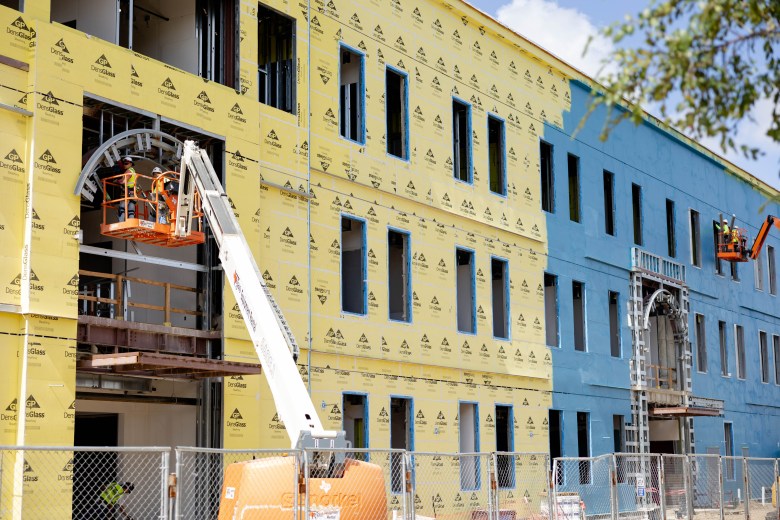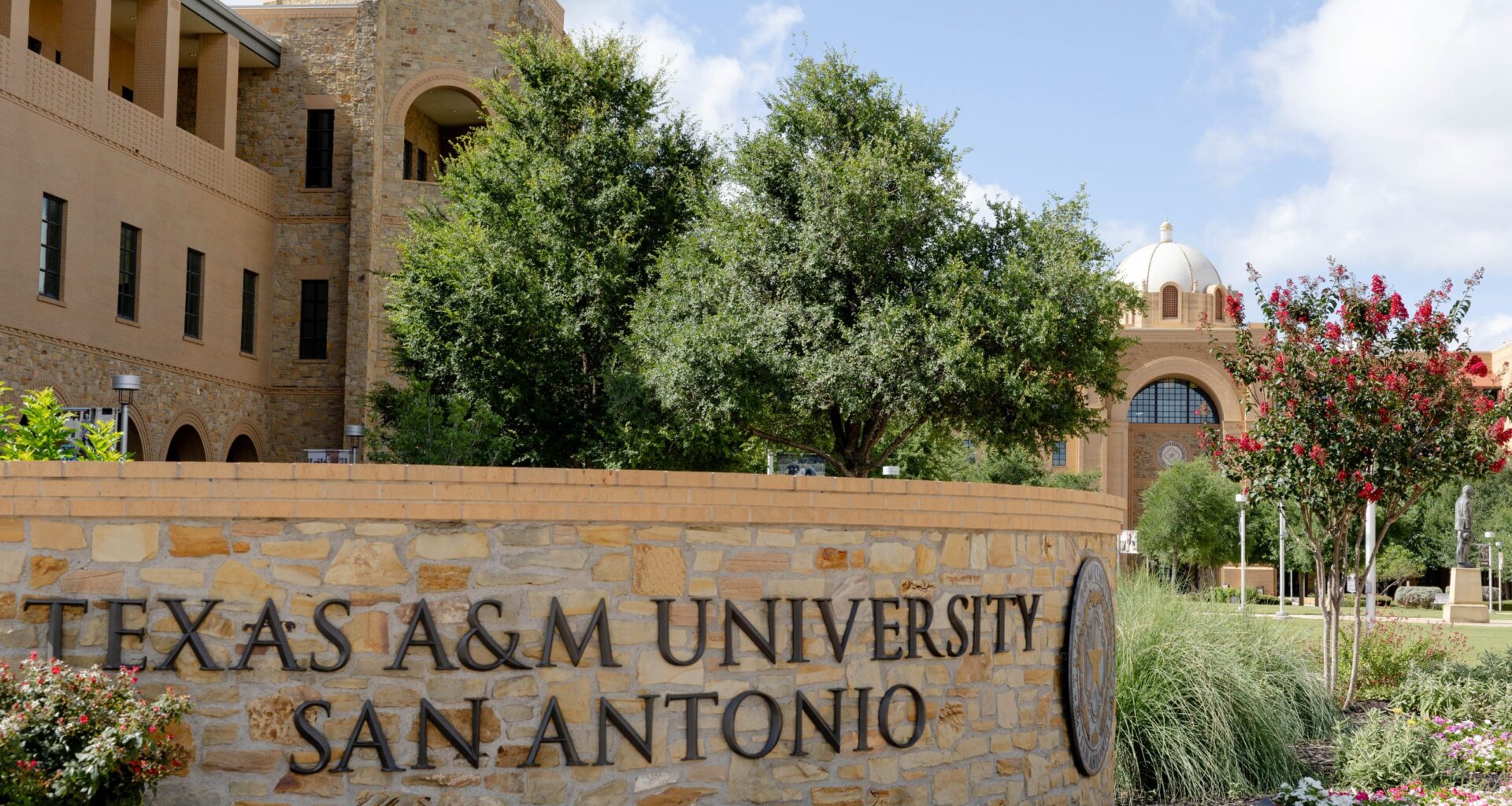Texas A&M University-San Antonio is on the verge of offering its first-ever doctoral degree, with the state’s approval of a Doctor of Education in Educational Leadership program.
The new offering is designed with the Southside community in mind.
“This is going to be a real change agent here,” said Emma Savage-Davis, dean of the College of Education and Human Development. “We originated from the work of [Texas] Sen. Frank Madla, who thought that the South Side of San Antonio deserved opportunity. … This university was placed here for that purpose and we are committed to this community.”
The university received approval from the Texas Higher Education Coordinating board on July 24, and department faculty and staff are getting ready to submit the program to the Southern Association of Colleges and Schools Commission on Colleges, SACSCOC, which will accredit it at the national level.
Once fully approved, the program is slated to start during the fall of 2026, with an expected cohort of about 15 doctoral students who are seeking to become principals and superintendents, as well as curriculum specialists or instructional leaders.
“While most educational leadership programs focus on principals, assistant principals and superintendents, we are actually valuing teacher leaders with this program,” Savage-Davis said.
TAMUSA, established in 2009, now offers 18 master’s degree programs in its colleges of Arts and Science, Business and Education — eight of them in the College of Education.
Planning TAMUSA’s doctoral program
In 2022, Savage-Davis and her team formed a task force dedicated to the creation of the institution’s first doctoral program. The group sought to incorporate feedback from TAMUSA’s College of Education alumni — 98% of whom reside in Bexar County — which was gathered in survey since 2019.
The goal was to assess if TAMUSA adequately prepared its education graduates for the field, what their aspirations were, and other pathways that might be of service to them.
They also gathered feedback from Southside educators through the ASPIRE Partnership network, which includes the public school districts of East Central, Edgewood, Harlandale, Somerset, South San Antonio, Southside and Southwest to better understand if their current offerings met the needs of the community.
This partnership between TAMUSA and its neighboring school districts aims to enhance the school-to-college pipeline as well as teacher preparation in areas of high demand in the region.
 TAMUSA’s Public Health and Education Building under construction. Credit: Brenda Bazán / San Antonio Report
TAMUSA’s Public Health and Education Building under construction. Credit: Brenda Bazán / San Antonio Report
Using the alumni and educator feedback, the task force decided to develop a graduate program that specializes in leadership in early childhood education, special education, bilingual education, multidisciplinary approaches and district-level leadership with the option to earn a superintendent certification.
“We wanted to be very specific in approaching the needs that were identified by our local superintendents and these are growing areas that are often underserved,” said Elisabeth Krimbill, a TAMUSA associate professor who was part of the task force.
The doctoral students will be expected to develop research that can be implemented in the districts they currently work at or those they’ll go on to serve to improve programming and opportunity for students, Savage-Davis said.
A third of the classes will focus on research, Krimbill and Savage-Davis said.
“They’ll be analyzing their data and and learning how to do something with it to make impact on the community,” Krimbill said.
A doctorate in education
Because some, if not most, of those entering the doctoral program are expected to be working professionals, the courses will be offered fully online and synchronously, meaning the course will be taught by a professor online and not as a learn-at-your-own-pace module course.
This synchronous online approach has had success in other graduate programs, so it was the ideal way to start something dedicated to working professionals, Savage-Davis said.
For now, the plan is to start with a 15-student cohort and assess the new program’s success at different stages with surveys that start at the three-week mark and continue throughout the program.
“This will allow us to deliver that kind of instruction with high quality, not with quality, with high quality,” Savage-Davis said.
According to TAMUSA’s fall 2023 enrollment — which at the time included 7,593 total students — 70% of all students, including undergraduate and graduate students, identify as Hispanic or Latino, and nearly 71% of them were first-generation students, meaning they were the first to attend college.
For those students, earning a doctoral degree can have an impact not only in their own professional careers and socioeconomic status, but that of their entire family, Krimbill said.
“We have a population that is being provided opportunities that in the past they didn’t really have equal access to,” she said. “Think about this: Our students will be able to say, ‘I’m the first person in my family to have a doctoral degree.’”
